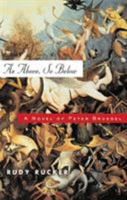The Trembling Hills
Select Format
Select Condition 
Book Overview
You Might Also Enjoy
Customer Reviews
Rated 4 starsmemorable!
I remember reading this book when I was about 19years old. Through the years, I wanted to read it again, but couldn't remember who wrote it, but I remembered parts of the story vividly. I was so excited when my mom started to talk about it; she was re-reading it! I was so excited because finally, I could read it again and recommend it to my daughters! The story is well written and you can identify with the characters.
0Report
Rated 5 starsthe trembling hills
I have read almost all of Phyllis Whitney's books, but this is my favorite! Whenever I reread this book it is like stepping back into a time when one of the most beautiful cities in the world, San Francisco, was shaken and burnt by one of the most devastating and worst earthquakes modern man has ever experienced, the 1906 earthquake. You feel like you are there experiencing, first hand, all of the emotions, the living conditions,...
0Report
Rated 4 starsA very memorable book
I read this book almost twenty years ago and the story is so vividly written, that I recall most of the story to this day. The story is of a young woman who experienced the San Francisco earthquake and the resulting fires that further devastated the city. I remember thinking that I could almost smell the smoke that choked the city. I did love the story and would certainly recommend the book.
2Report



















































